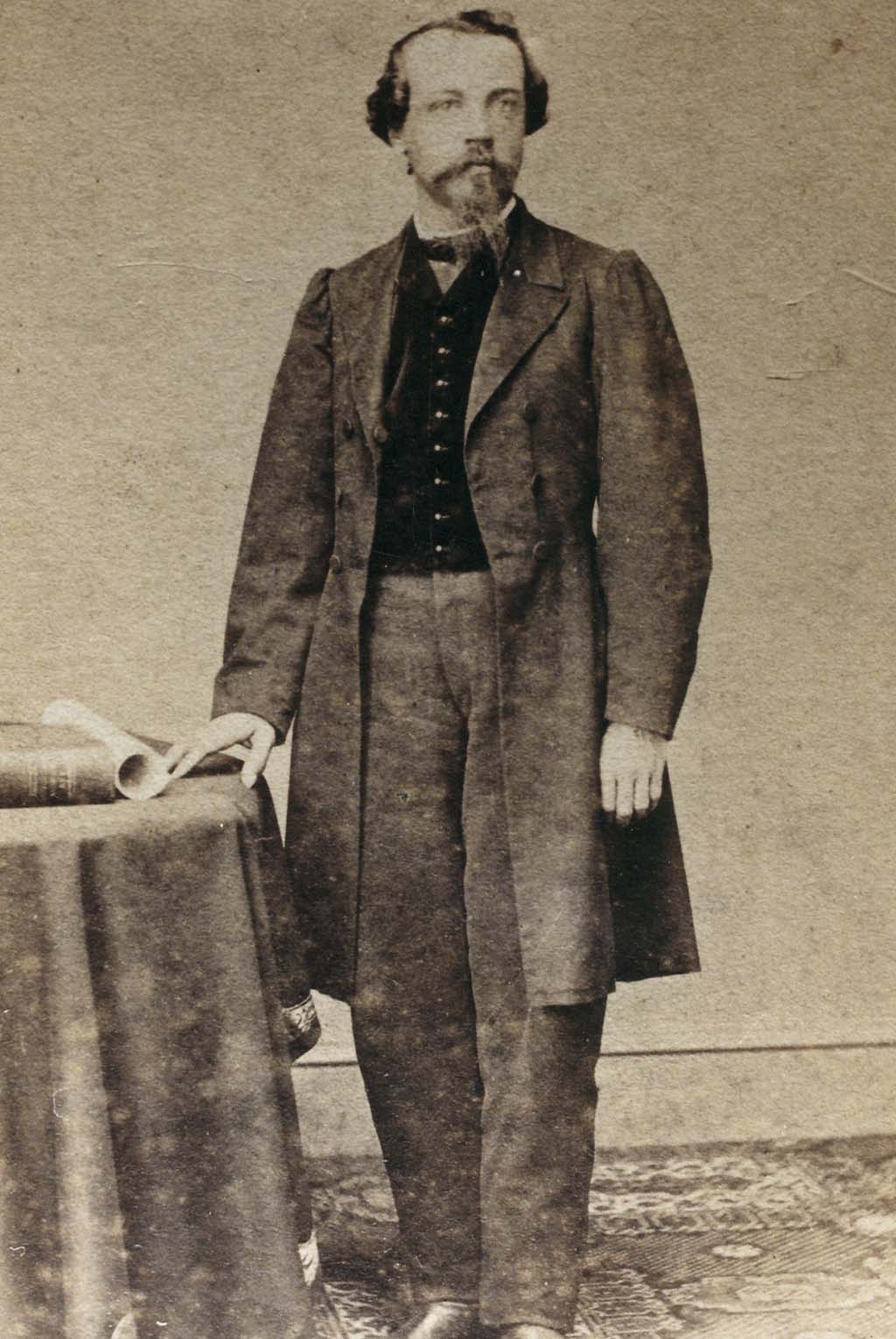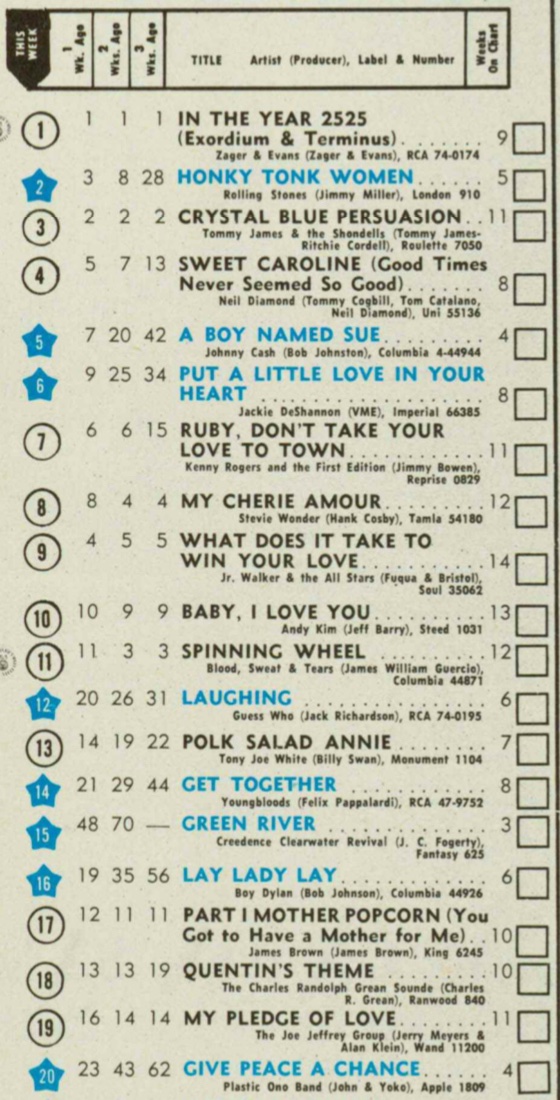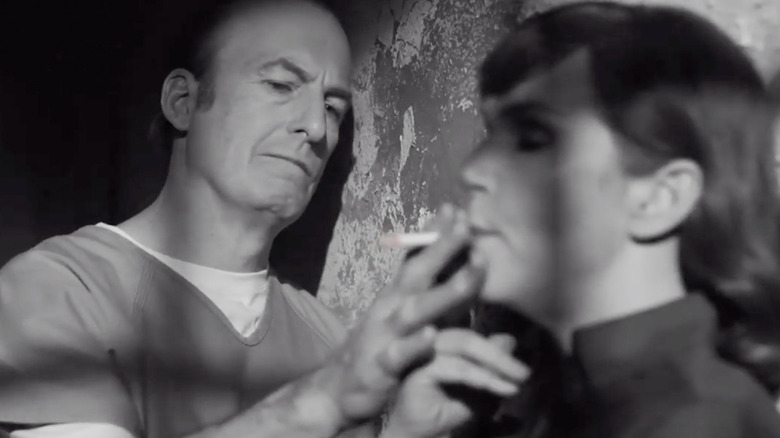Bari Weiss, a progressive purged in 2020 from the New York Times, interviews former Attorney General William Barr. I've excerpted some of the interview below and added my commentary in bold. Bari does excellent podcasts with a wide variety of interesting people. You can find the full podcast here.
Barr was the Trump administration's indispensable man. Without his willingness to take on the AG role, the administration's ability to govern would have continued to be impaired (leaving aside the remarkable ability of Trump to get in his own way) and the Mueller investigation would have continued until Biden took office, because the purpose of the investigation was to defeat Donald Trump. By the time Mueller was appointed, the principles already involved in the investigation knew there was "no big there there" as the FBI's Peter Strozek wrote Lisa Page in May 2017.
It was a difficult and thankless task. The best Barr could do in trying to undo the politicization of the Department of Justice under Eric Holder, was to work around the edges and control the worst excesses. I'm glad he did it.(1)
BW: I
want to begin with a quote from your wife, Christine. “The Left and the
Press have lost their minds over Trump and Trump is his own worst
enemy. Any sacrifice you make will be wasted on this man.” That’s what
she told you in 2019 before you joined the Trump administration.
Obviously, you did it anyway, which is why we’re talking. But was she
right?
THC: Christine Barr is very perceptive. Trump will eventually turn on everyone who is not 100% with him.(2) In that way, he's like the progressives who cast into the darkness anyone who does not demonstrate 100% alignment with their mantra. Like Bari Weiss, for example.
AG BARR:
She was, as usual, dead on. The left has lost their mind over Trump.
Trump Derangement Syndrome is a real thing. But Trump is his own worst
enemy. He’s incorrigible. He doesn’t take advice from people. And you’re
not going to teach an old dog new tricks.
THC: Yes. And that's why I will not vote for him if he is nominated in 2024. More on this in a comment below.
AG BARR: I
hoped that it wasn’t true. I thought there was a chance he would rally
to the office and be more disciplined in his behavior. I thought he
might recognize that the presidency is a unique office, which is not
only a political leader but the head of state, representing the whole
nation. I hoped he would rise to the occasion. He didn’t.
I
said to him when I first started that I thought he was going to lose
the election unless he adjusted a little bit. And if he did adjust, he
could go down in history as a great president. He continued to be
self-indulgent and petty and turned off key constituencies that
ultimately made the difference in the election.
THC: I agree. Exhibit 1 is his clown show covid press conferences. Andrew Cuomo and Trump have very similar personalities. The only difference is that at least Cuomo could fake empathy. Also, Trump is a one trick pony - if you attack him, he will attack you. Once the press realized this, they simply baited him at the covid press conferences and he fell for it every time. A big contrast with DeSantis, who when I first started watching him in the spring of 2020 always responded on his own terms (along with actually understanding the growing research literature on covid, as well as the related policy issues - another contrast with Trump).
AG BARR: [On Russia collusion] Information
has now come out that supports the proposition that these ideas really
got going because of a political ploy by the Clinton administration to
try to hang Putin around Trump’s neck and claim they were in cahoots. I
never thought there was any basis for this. The Russians did apparently
hack and dump. They stole emails and they dumped them out in the public.
That is really the extent of what happened. And that is their stock and
trade—that’s what they do all the time. They don’t have to collude in
order to do that. It never made sense to me that they would get
Americans involved in that operation.
Putin
also had his own reasons for despising Hillary Clinton. He didn’t need
any other motivation to go in and screw around with the 2016 election.
The things that Trump was being accused of—the policy positions he took—
had a constituency within the Republican Party for a while. Before the
2016 election, Kissinger had talked about the idea of Finland-izing
Ukraine and recognizing that Russia had deep interests in Crimea. These
were not wacky ideas. And they didn’t necessarily mean that he was in
the pocket of the Russians.
THC: Yes, as far as that goes, but Barr's institutionalism blinds him to the fact there were two threads to the Russia collusion hoax. The first was the Clinton campaign, the second the intelligence community. Those interests eventually combined. As to the policy positions, here is a prime example of how the Democrats, the intelligence community, and the media distorted the GOP position - the Ukraine platform statement at the 2016 GOP convention - read The DC Bubble & The FBI.
. . . That was curious because, after the election, the dossier and the
other stuff they had been relying on had collapsed. It was pretty clear
not too long after the election that this whole thing was a farce. Yet
that’s when both the F.B.I. doubled down on it, and the mainstream media
kicked in. I always thought that was very strange.
THC: Not strange. The collapse of the dossier was irrelevant. The goal after the election was to undermine the credibility of the Administration, hamper its operations, force it to constantly respond to Fake News about Russia, and to keep the Mueller investigation going as long as possible to create the mirage that something of substance was being investigated as well as hoping to lure Trump into agreeing to an interview so he could be charged with false statements. The media, led by the New York Times, publicly announced their goal was to get Trump out of office, so creating a narrative in support of the hoax was their core mission.
AG BARR: I
think it ended with Bob Mueller’s testimony over the summer of 2020. It
really collapsed at that point. I’ve been surprised that the mainstream
media and the people who fanned this to the point of hysteria haven’t
come back to say: “Yeah, there was a big lie in 2016 that has hurt the
country and distorted our politics and foreign policy throughout the
Trump administration. It was unjust. It was wrong. And we made a
mistake.” Very few, if any, have come out to say that.
THC: Because this is all about the creation and maintenance of a narrative. Just as the objective truth about the 2020 election does not matter to Donald Trump, the objective truth about Russia does not matter to Democrats and their media allies. The increasing lack of attachment to reality in American life across the political spectrum spells disaster, if not checked.
BW: If the firing of F.B.I. Director James Comey wasn’t obstruction, how would you describe it? Do you think that it was unwise?
AG BARR: I
would describe it as something that should have happened long before.
Everyone I knew in Republican and Justice Department circles, including
me, was advising Trump at the very beginning of his administration to
fire Comey before we even knew his role in Russiagate. It’s because
Comey, in my opinion, has some of the personality characteristics that
can lead people, like J. Edgar Hoover, to run the F.B.I. according to
their personal whims. I thought it was dangerous and that he should go.
THC: Agree. This should have been done on January 20, 2017. The worst mistake Trump made. I believe he kept Comey only because he knew of Hillary's dislike of him, another example of his reactive mode and inability to think things through. She would have fired him on day one. Trump talked tough, but Hillary is actually much tougher.
BW: Did you underestimate Trump’s disregard for the truth and disregard for the results of the election?
AG BARR: I
underestimated how far he would take it. I thought on December 14, when
I tendered my resignation, the states had all certified the votes. To
me, that was it. That was the last stop. There was no process beyond
that which would allow him to challenge the election. I thought it was
safe to leave at that point. I was wrong. I did not expect him to take
it as far as he did with these very whacky legal theories that no one
gave any credence to.
THC: I also underestimated how far he would go with this insanity.
AG BARR: [After, in early December, he told an AP reporter that DOJ found no evidence of fraud significant enough to impact the election] He
was in a little dining room that adjoins the Oval Office. He was as
furious as I’d ever seen him. He confronted me and said, “Did you say
this to the AP?” And I said, “I did. Because it was the truth.” I went
over some of the allegations. He said there was plenty of evidence of
fraud. I explained in some detail why the allegations didn’t fly. I told
him that there were only five or six weeks to challenge a presidential
election because the Constitution requires the Electoral College to meet
at a certain date and he didn’t have much time. He’d already wasted
five of your six weeks with this crazy stuff about the Dominion
machines. He’d wheeled out this clown show of lawyers that no reputable
lawyer is willing to work with.
AG BARR: [On his leaving the Administration in late December and being complimentary to Trump in his resignation letter]. I
was somewhat demoralized that he was leaving office this way. The left
says, “Oh, you said all these nice things about him in your
resignation.” But I felt that what he should do was focus on all his
achievements and leave with dignity. Whether he thought there was fraud
or not, he had his day in court and he lost.
So
I was demoralized that he was going out the way he was. I thought it
was very unfair to all the people, especially the younger people, who
had worked in the administration. It hurt them getting jobs and it also
hurt the Republican Party, which I thought up until then, could take the
high ground as the party of law and order.
BW: So in other words, you were giving him a script for himself, rather than saying what you felt?
AG BARR: Well,
I did feel it. I just want to make it clear that I supported President
Trump. I liked his policies. Up until the election, I didn’t have a
problem with his policies. I found him very difficult to work with and I
think it took a lot of effort from all his cabinet secretaries, not
just me, to keep things on track. (He never really listened to his
lawyers, so it was hard to keep things on track.) But I thought we got
to the election in pretty good shape and I was proud of the record of
the administration.
I
think things went off the rails after the election because I think he
felt he had nothing to lose at that point. I was trying to say, “Look,
you do have to take a bow for what you were able to accomplish.” I said
in that letter that what I believe was distinctive about his
administration was he was unjustly treated. He was sinned against with
Russiagate. That colored the whole administration. I still think that
had people responded to his victory speech—which I thought was a very
diplomatic speech the night he won in 2016—we would have seen a
different Trump. I think once he thought that the F.B.I. was coming
after him and trying to throw him out of office, that affected not only
Trump but also his hardcore supporters, who were made very suspicious. I
think it fundamentally distorted our politics during his
administration. I felt that it was important to say that he did fight
against this Trump Derangement Syndrome. And he did accomplish a lot.
And it was historic. The economic growth and the fact that people who
had been left out previously were starting to participate more. It was a
tragedy that Covid arrested that progress, but it was a historic
accomplishment.
THC: In one of my Russia collusion posts, I remarked that with Trump you started with someone who was gullible and susceptible to believing in conspiracy theories, and then his opponents actually constructed a real conspiracy with the Russia nonsense, which only made his tendencies worse. I did not believe something like the collusion hoax was possible back in 2016. The past few years have reoriented my thinking.
BW: How
did you feel watching this? You’re someone who has served this country
for decades. You’re also someone that served this administration and
tried as best as you could to keep it on the rails. What were you
feeling as you watched this scene go down?
AG BARR:
I was disgusted and mortified and feeling very angry. I felt this whole
thing had hurt the Republican Party and hurt the reputation of the
administration even more than before. I was angry about that. Everyone I
knew in the administration was angry about that. I also felt that it
was just a Keystone Cops exercise. There wasn’t a genuine threat of
overthrowing the government, as far as I was concerned, it was just a
circus. That’s true of a lot of things that Trump arranges. I felt that
one of the sub themes of the administration was that when the president
runs into people who don't agree with him, he tries these little
jury-rigged operations with people who are not in government and they
are frivolous. So the whole thing, to me, was a big embarrassment.
THC: "as far as I was concerned, it was just a circus. That's true of a lot of things Trump arranges" is how Trump has always operated. He lives in the moment and once the moment passes, he improvises his next action based on the response he generates. That works for reality TV, not such much as the chief executive of the United States.
AG BARR: I
would say that it was a riot that got out of control. People breached
the Congress, and were attacking police. Obviously not all the
demonstrators were doing this.
I
would say it was an effort to intimidate Congress and the vice
president. I haven’t heard words from the president that I would
consider incitement under the law. That’s a very high bar because of our
First Amendment, and it should be a high bar. But I did feel that he
was morally responsible for it because he led these people to believe
that something could happen on Capitol Hill that would reverse the
election. That there’s something they could do involving pressuring the
vice president and Congress that would overturn the election.
AG BARR: Number
one is that I think a lot of the attacks on the F.B.I. are over the top
because a decision like this is not made by the F.B.I. In fact, I don't
think the F.B.I. would push a decision that it’s best to go in and
search and obtain those documents after being jerked around for a year
and a half. The decision would be made at the Department of Justice, by
subordinates of the AG, and ultimately signed off on by the AG. The
F.B.I. would be told to go and execute it. I think the idea that the
F.B.I. is the problem here is misplaced.
Number
two—and the main reason I’m irritated at the whole episode—is that it
actually strengthens Trump and strengthens Biden and hurts the
Republican Party going into the midterms. The focus has once again
returned to President Trump and his persona and his modus operandi
instead of the pocketbook issues that had been the focus before. I think
this has been a bad development for the Republicans’ hopes in the
midterms. That’s why I find it frustrating, because there’s political
fallout.
THC: I partially agree with Barr but his reference to "pocketbook issues" indicates, that like many of the old-line GOP, he doesn't completely get what is going on today. Institutional reform, in and out of government, and taking on cultural issues, is as high a priority. The days of Republicans comfortable on economic issues, talking the Chamber of Commerce line, but unwilling to confront the other issues are over. The Mitt Romney and Larry Hogan types have no national future.
BW: What
do you say to conservatives who say: Why should we possibly trust these
institutions anymore? You still give them the benefit of the doubt, but
many in your party don’t.
AG BARR:
I think the Russiagate thing, to the extent that the F.B.I. was
misused, was a series of decisions made by high-level officials in the
F.B.I. I don’t think that Chris Wray is that type of leader, nor do I
think the people around Chris Wray are those types of leaders. I think
there are problems in the F.B.I. but it’s not that Wray is going to wake
up and say, “How do I throw the F.B.I.’s weight around and interfere in
the political process?” Just the opposite. I think he’s very cautious
about that.
In
the department it’s spotty. There are some people in the career ranks
that are partisans and can't check it at the door. And there are others
that have more respect.
I always say, “What’s the alternative?” We have these institutions that
need reform. The first step is to win an election with a decisive
majority that allows you to put a program into effect and fix some of
these problems going forward. That is not done by just throwing fuel on
the fire of outrage on one side of the equation while the other side
does the same thing on their side. I don’t see anything productive
coming out of that. I think we should basically try to persuade people.
People like Youngkin, the Governor of Virginia, have shown that the
Republican Party is a potential majority party.
THC: I do not have the level of confidence that Barr still has in these institutions, and I certainly do not trust Christopher Wray. Trump's wrecking ball approach is proven to be ineffective, so he is not the solution. The rot in our institutions, and not just in government, is deep and will require a disciplined and Herculean effort, intelligently executed, to reverse. I don't know if anyone, or any group, is capable of doing it, but Trump is definitely not.
AG BARR: I
think you’re right that right now is a tremendous opportunity for the
Republican Party. The defining dynamic of our period right now is the
sharp leftward turn of the Democratic Party. That creates a huge
opportunity because they’ve moved so far to the left, which can allow
the Republicans to come in, as they did in 1980, and seize a decisive
majority. That enabled Reagan to win two terms. It also forced the
Democrats to elect a moderate Democrat like Clinton, who ran the country
in the center.
So it's a huge opportunity. But instead of taking it, we are purging the party and starting civil wars over whether people are RINOs . . . The idea that there are RINOs, people that really don't support Republican principles, is simply not true. What the president is defining as RINOs are people who are true blue Republicans and conservatives but who just have a problem with Trump personally. This is all personal to Trump. Trump is doing something that I can't think of any great leader in the past doing. He controls, in my view, maybe a third of the Republican Party. But what makes him powerful is that this is a man who's willing to say that if you don't do things my way and if I'm not the nominee, I'm taking my ball and going home. I will sabotage anyone you put up. He not only does that in the presidential election, but he'll also do that in state elections. It's my person or sabotage.
THC: I agree with Barr regarding what Trump is doing but, once again, I don't like the term RINOs, but Republicans unwilling to tackle the cultural and institutional issues do not have a future in the party.
AG BARR: They were wrong, in my opinion, because although we've been sort of harping on the warts of Trumpism, I think the greatest threat to the country is the radical progressive movement and what it's degenerated into.
THC: Absolutely right. The impulsive, chaotic nature of Trump and his followers can be disruptive and destructive but there is no institutional traction and also provides further rationalization for the Democrats to justify and exercise their authoritarian instincts. The control of the federal bureaucracy, and of the major institutions in our country outside of government, has set the stage for the interlocking crackdown on dissent we are already seeing. Moreover, the phony election reform bill, narrowly defeated in the Senate, would have federalized elections, preventing any efforts at state level attempts to control fraud, and would have established the groundwork for a permanent Democrat government at the federal level. It is this institutional support that marks the difference between the dangerous tendencies in the Republican and Democratic parties.
In November 2021, Margaret Hoover of PBS interviewed the Chinese dissident and exile Ai Weiwei. Based on something Ai had written, Hoover asked if he saw Donald Trump as an authoritarian. I think she was surprised at the answer (the relevant part starts at about 15:45):
Ai: If you are authoritarian, you have to have a system supporting you. You cannot just be an authoritarian by yourself.
He goes on to say that in today's conditions you could easily have an authoritarian and that, in many ways, the U.S. is already in that state, pointing to political correctness and its similarities to the Cultural Revolution of Mao. It reminds me of the interview I saw with the Yeonmi Park, the young woman who escaped North Korea, endured more brutality in China, and eventually made it to the United States. Reflecting on the political and cultural attitudes she encountered at Columbia University she remarked that "this is a suicidal civilization".
And you can read this piece on which party is an outlier on substance.
BW: In
the 2024 election, if we have Joe Biden versus Trump, Kamala Harris
versus Trump, or Gavin Newsom versus Trump, you’re voting Trump?
AG BARR: Right now, I would say yes.
THC: It's a no for me, under any circumstance. I will work for, and support, the R candidate with the best chance to beat Trump, if he runs, and will not vote for him in the general, if nominated. Nor will I vote for the D candidate. Here are my 7 Theses on the subject:
(1) As Barr says, I think Trump had a clear path to winning in 2020 but his inability to control himself, dug him a deep hole. He has even less ability to control himself now.
(2) His post-election behavior was a disgrace and made him unworthy to be an American president. Here's what I wrote on January 6, 2021.
(3) From a purely political perspective, his post-election behavior was idiotic. No sane person would have believed he would still be president on January 21, so what was his plan? What was his thinking? The agitation to get his most fervent supporters fired up about January 6 was a dead end. It was reality show theater, as much of Trump's political career is. After the rioters entered the Capitol what was supposed to happen? Was there some rational path that led to another term for Trump? And, at the same time, he was venting his personal spite in way that depressed R turnout in Georgia, losing control of the Senate. If, after the electoral college vote on December 14, Trump had simply stated that while he thought there was election fraud, he accepted the results, and was certain, once the American people saw how the Biden administration governed, they'd be yearning for his return, both Trump and the party would be in much better shape today.
(4) If Trump runs and fails to get the nomination he will sabotage the R nominee.
(5) If Trump gets the nomination he will send two conflicting messages during his campaign - vote for me and the system is rigged against you, just as he did during the Georgia Senate runoffs - vote for the R's but, by the way, the system is rigged against you. Trump depressed voter turnout.
(6) If Trump runs and loses, as he did in 2020, he will refuse to accept the results as legitimate, but this time he will have primed even more to believe him, and plunge us into an even more serious crisis than in the post-2020 election period. The last time around he managed to lose R control of the Senate, so that we are left to the whims of Manchin and Sinema, as to whether the country will fall under a Democratic authoritarian regime. His post-election behavior more broadly damaged R credibility, and a 2024 revenge tour will only add to this disaster.
(7) If Trump wins in 2024, we will get a lot more of the bad and a lot less of the good. He is focused on revenge. He still shows no interest in the nuts and bolts of governance needed to address the serious issues we face. He still has terrible judgment in the people he hires, and now that he's established a reputation as a terrible and untrustworthy boss, the types of people still willing to work for him are of the worst capability and character. He'll be a 78 year old guy, set in his ways, with declining mental abilities. Sound familiar? The damage he will do to the issues I care about is incalculable.
Donald Trump is a malignant force in American politics.
AG BARR: I like a lot of these guys, some of them
much better than others. I don’t know Ron DeSantis that well, but I’ve
been impressed with his record in Florida. I’m going to support whoever
has the best chance of pushing Trump aside.
What we’ve moved to is a bipolar system that’s more typical of
revolutionary countries, where you have a party like the Marxists or
some other totalitarian party trying to take power. It’s all or nothing
and anything goes. It’s war by other means. That’s where we are, and it
doesn’t end well.
THC: Again, I think Barr is correct. Any corrective course we take entails dangers to this country's founding principles. Our current dilemma led to this conclusion in my essay on Elihu Root:
America works to the extent the large majority of its citizens, no
matter how they may differ, generally accept common process outcomes or "sometimes you win, sometimes you lose, sometimes it rains" (yes, I'm quoting Bull Durham).
This aspirational belief in neutral processes, supported by freedom of
conscience and speech, along with equality under the law and due process
rights, is the only way Root's vision can be sustained.
Can we confront and defeat the enemies of liberal democracy merely by
using the traditional Constitutional tools to achieve the aspirations
set forth in that document? Do we now face the scenario written of by
Frank Herbert in Children of Dune:
When I am Weaker than you, I ask you for Freedom because that is
according to your principles; when I am Stronger than you, I take away
your Freedom because that is according to my principles.
Having effectively used our concept of tolerance (as something we owe each other)
to seize control of institutions, these forces now seek to destroy the
mutuality inherent in that concept and return to the older, medieval
meaning of tolerance, as something bestowed by rulers and revocable at
their discretion.
Can we effectively oppose them using these long standing general
principles, neutral processes and reliance on the Constitutional
protections enunciated by Root or does that strategy lead to inevitable
defeat if large portions of society refuse to play by the same rules?
Does it mean adopting the same techniques in order to defeat those who
seek to embed these dangerous principles into our government and
culture? If so, how does one ensure that in doing so, we do not become
what the enemies of American principles have become? A decade ago, I
never thought this question would arise and would certainly have
objected to straying from those principles. I underestimated what was
happening within those institutions and am no longer certain as to the
right answer; an answer that will determine if we will govern ourselves
or be governed by others.
-----------------------------------------------------------
(1) Here's a sampling of what Holder did to destroy the reputation of DOJ:
- Proclaim himself as President Obama's "wingman" whose job it was to protect the president. Any previous AG making that statement, particularly if a Republican, would have been condemned by the press, and prompt protests within the Justice Department. Instead we heard crickets from within DOJ. Interestingly, President Trump understood what Holder was up to. We learned from the Mueller report that, on at least two occasions, he complained to his staff that he needed an AG like Robert Kennedy or Eric Holder to defend him. He was right. Jeff Sessions was an honorable man but he was no Eric Holder.
- When President Obama proclaimed on 60 Minutes that Hillary Clinton was innocent, even as his DOJ was supposedly conducting an investigation of her conduct regarding government emails, his AG, Holder's successor Loretta Lynch, failed to act on the President's improper intervention and appoint Special Counsel. Once again, we heard no protests from DOJ attorneys.
- In 2014, two thirds of the Inspector Generals in federal agencies signed an open letter to Congress complaining that Holder's DOJ was interfering with their investigations. The letter was a one-day story in the Washington Post and not covered in the New York Times.
- At the beginning of the Obama administration, Holder hired nearly 100 attorneys for the Civil Rights Division. An IG report criticized Holder for ignoring highly qualified candidates and only hiring from four activist groups, including the legal funds for the NAACP and La Raza, all of whom take the legal position that the anti-discrimination language in the Civil Rights Act does not apply to white people. This position is also taken by Kristen Clarke, the lawyer appointed by Biden to lead the Civil Rights Division of DOJ, as well as by Vanita Gupta, the current #3 at DOJ.
- Funneled tens of millions of dollars to activist groups supporting the administration as part of its settlement of lawsuits against major banking and other institutions, a practice ended when AG Sessions took office, though perhaps the GOP would have been smarter to emulate Holder's corrupt practices.
Today, we are saddled with a DOJ led by Democratic partisans and largely staffed by partisan Democrats, having now destroyed its credibility with half of America.
(2) In footnote 1, I mentioned Jeff Sessions, who is also a perfect example of Trump's insistent on total personal loyalty and its short-sightedness. Sessions was a very good Senator, knowledgeable about substance and process, an expert on the details of immigration law, and respected by his colleagues. Like many Senators, he proved a bad fit as a Cabinet officer. Trump was furious he recused himself on the Russia matter, something AG Holder never would have done, and I think a mistake as it was clearly part of the maneuvering to eventually get Special Counsel Muller appointed.
In 2020, Sessions attempted to get the GOP Senate nomination in Alabama, and strongly supporting President Trump's policy positions. Trump, still angry about Sessions as AG, instead endorsed Tommy Tubs, or whatever his name is, an inexperienced candidate who knows nothing about policy or how the Senate operates but pledged 100% personal fealty to Trump. That endorsement was enough for Tommy to get the nomination and win the election, but the GOP lost someone who knew substance and process, was an effective Senator, and was considered one of the Senate's leading experts on immigration, with similar views to Trump. If Trump had won in 2020 he could have used someone like Sessions in the Senate. Instead we have Tommy Tubs, a blockhead who will vote the right way, but has no ability to influence the greater outcome or the writing of legislation.
The GOP desperately needs skilled politicians who understand substance and process, and are willing to spend time on the details and understand how to negotiate. Trump prefers loyal "show horses", who delight in tweeting and being the center of attention, like MTG and the high forehead guy from Florida, but who have no interest in governance or in learning how to do it. "Owning the libs" is enough for them. It is precisely why so much of what Trump did domestically was ephemeral and so effortlessly reversed by Biden.
 (Arnold Bertonneau)
(Arnold Bertonneau) 
 As someone who's done so many posts on the great music of the 1960s and 70s, this chart, which I came across today, is a forceful reminder that we also had a lot of popular dreck on the radio. This shows the top 20 singles for this week in 1969.
As someone who's done so many posts on the great music of the 1960s and 70s, this chart, which I came across today, is a forceful reminder that we also had a lot of popular dreck on the radio. This shows the top 20 singles for this week in 1969.





 California Scene Painting is defined in Wikipedia as "a form of American regionalist art depicting landscapes, places, and people of California. It flourished from the 1920s to the 1960s."
California Scene Painting is defined in Wikipedia as "a form of American regionalist art depicting landscapes, places, and people of California. It flourished from the 1920s to the 1960s."


